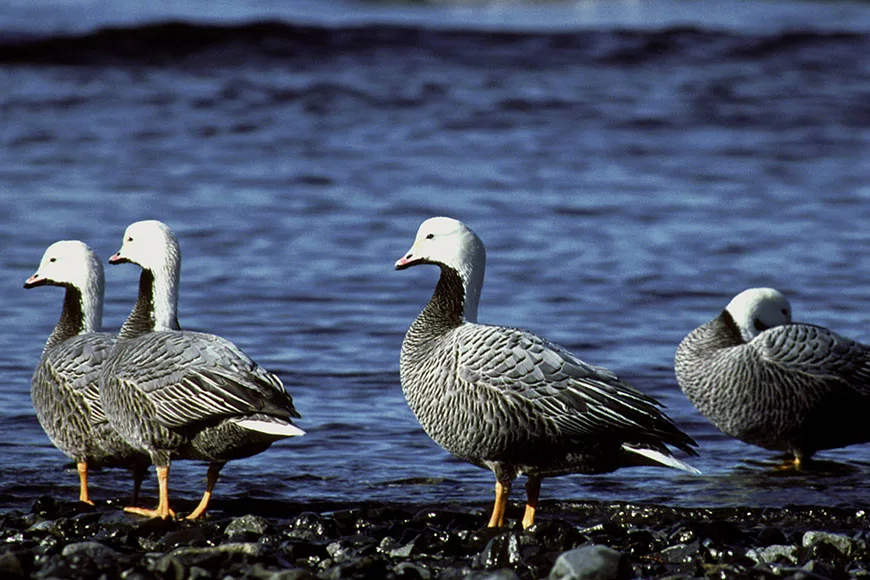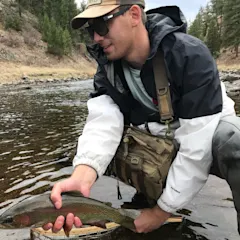Alaska will not hold an emperor goose hunt for the 2025-2026 season—and potentially for years to come. Both subsistence and sport hunting for the species has been closed after the population threshold dropped below the minimum numbers required for allowing hunting under a Pacific Flyway Management Plan for the species.
Sport hunting for emperor geese, which live in the rocky beaches and brackish waters of coastal Alaska and Russia, is managed under a federal regulatory framework based off an annual breeding survey index. If the population is above 28,000 birds, a 1,000-bird quota is allotted to sport hunters. A count between 23,000 and 28,000 allows for a restricted sport harvest of 500 birds. Below 23,000 triggers an automatic closure of sport hunting, which is managed by the Alaska Department of Fish and Game (ADFG)—as well as subsistence hunting, which is administered by the U.S. Fish and Wildlife Service.
In 2024, the breeding survey totaled 18,788 emperor geese, down 23 percent from 24,349 geese in 2023. Sport hunting for emperor geese was only reopened in 2017, following a 30-year hiatus to help the long-embattled species recover.
According to the U.S. Fish and Wildlife Service, several factors make the species particularly vulnerable to overharvest and other population pressures; compared to other Arctic nesting geese, emperor geese have a slow population growth rate, do not mate until 3-years-old, have a low juvenile survival rate, breed irregularly, and do not benefit from grazing on agriculture lands in the Lower 48 like other species.
In an interview with Field & Stream, Jason Schamber, Waterfowl Program Coordinator for the ADFG, declined to speculate on how long it might be before emperor goose hunting reopens. “[It] will depend on population abundance in the coming years,” he said. “We cannot predict when that will occur.”
Likely Impacts to Outfitters and Waterfowlers
Sport hunting for emperor geese takes place on the Aleutian Islands. Over the past eight years, Aleutian Island Waterfowlers has become one of the outfitters specializing in hunting for the bucket-list bird. The outfitter’s owner Captain Charlie Summerville argues that subsistence hunting has a higher impact on the species than sport hunting and says that the sport hunting closure will significantly impact the local economy.
“It’s going to be a huge economic factor,” he tells F&S. “A fully guided emperor goose hunt is between $5,000 and $6,000 dollars, plus airfare, food, and lodging, you’re talking nearly $10,000 per person in generated income supporting the Alaska economy.”
Related: Mallard DNA Test Shows Farm Genetics
“We’re fortunate that the species opened back up in 2017,” he adds. “Hopefully since they caught it now with the species just a few thousand birds below the threshold, they can put a halt on the species’ decline.”


